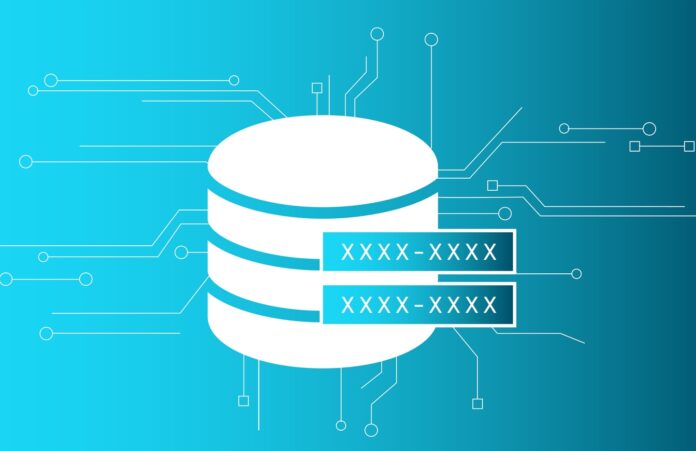The ease of digital data, however, comes with the burden of ensuring strong data security measures. In this article, we will look at the critical features of data security in CRM development, with a particular emphasis on how outsourced web development services may play a critical role in securing sensitive client information.
CRM Development Services include a wide variety of operations, from developing user interfaces to executing complex backend systems. Despite the complexity of CRM development, data security must remain a top priority. Here are some crucial points to consider:
Compliance with Data Protection Legislation
Ensuring compliance with applicable data protection legislation such as GDPR or HIPAA is one of the most important stages in safeguarding consumer data. When working with CRM Development Service providers, it is essential to validate their understanding and adherence to these rules. Noncompliance may result in serious legal consequences as well as harm to your brand’s image.

Encryption and Access Control
The security and integrity of client data are critical in CRM development. Any other project relies heavily on encryption and access restriction.
Encryption:
- The process of turning sensitive information into a coded format that is illegible without the necessary decryption key is known as data encryption. It safeguards data while it is in transit and at rest inside the CRM system.
- To encrypt data during communication, all data transactions between users and the CRM should employ secure protocols (e.g., HTTPS).
- Encryption protects stored customer data at rest, guaranteeing that even if unwanted access happens, the data remains unavailable.
Access Management:
- Access control entails implementing stringent controls to limit who may access CRM data and what activities they can conduct.
- The term “role-based access control” (RBAC) refers to the practice of giving various degrees of access depending on employment positions.
- Reduce the risk of unauthorized data exposure by ensuring that users only have access to the exact data and functionality necessary for their responsibilities.
- Review and adjust access permissions on a regular basis to keep up with organizational changes and increasing security demands.
CRM systems may strengthen data security by including strong encryption and access control measures, protecting client information from unwanted access and possible breaches. It is critical to collaborate with your CRM Development Services provider and outsource web development services partner to ensure that these security measures are appropriately incorporated inside your CRM system.

Patch Management and Regular Security Audits
Data security is a continual endeavor. Security audits should be performed on a regular basis to discover vulnerabilities and flaws in the CRM system. Furthermore, timely patch management is required to resolve any detected vulnerabilities. Engaging a CRM Development Services partner should include a commitment to periodic security audits and upgrades.
Data Backup and Disaster Recovery
In CRM development, safeguarding customer data is paramount. A robust data backup and disaster recovery strategy ensures the security and continuity of operations.
Data Backup:
- Regular automated backups of CRM data are crucial to maintaining up-to-date copies.
- Store backups off-site in separate locations to protect against physical disasters.
- Maintain multiple versions of backups and encrypt them for added security.
Disaster Recovery:
- Define your acceptable data loss (RPO) and downtime (RTO) thresholds.
- Test and document the disaster recovery plan regularly.
- During Primary system failures, consider failover systems for seamless transitions.
Collaborate closely with your CRM Development Services provider and outsource web development services partner to integrate these measures seamlessly, ensuring swift recovery from data loss or system disruptions while maintaining data integrity and customer trust.

User Training and Awareness
User training and awareness are an important but often ignored part of data security. Human mistakes are still a key contributor to data breaches. Train your staff to spot and react to security risks properly. Regular security awareness workshops might assist your personnel in being cautious.
Even with the exact security measures, events may occur. It is critical to have a well-defined incident response strategy. Collaborate with your CRM Development Services supplier to develop a strategy for identifying, mitigating, and reporting security problems as soon as possible.
Third-Party Integrations and APIs in CRM Systems
CRM systems are the backbone of many businesses, managing everything from sales leads to customer relationships. A unique feature of these systems is their ability to integrate with third-party services and APIs, such as email marketing tools, analytics platforms, and e-commerce sites. While these integrations can amplify the power of a CRM system, they also introduce potential security vulnerabilities.
Imagine a chain with various links; the strength of this chain is determined by its weakest link. Similarly, even if the CRM is robust and secure, a poorly protected third-party integration can be an entry point for malicious actors. For example, in 2019, a significant data breach occurred when a hacker exploited an API, compromising the personal information of over 100 million users.
Tip: Regularly review and update the permissions and security protocols for any third-party integrations. Opt for reputed services that prioritize security and are compliant with industry standards.

Data Masking: A Closer Look
One can think of data masking as a digital masquerade ball. Just as attendees don masks to conceal their identities, sensitive data is disguised to protect it from prying eyes. This technique is invaluable when, say, a company needs to share customer data with an analytics team but doesn’t want to expose the full details.
For instance, instead of displaying “Jane Smith, 123 Elm Street,” the masked data might show “J**** S****, 1** *** Street.” This ensures that essential information remains confidential, while still allowing for data analysis and sharing.
Tip: Implementing data masking, especially in CRM systems, not only enhances security but also helps in compliance with privacy regulations like GDPR.
Conclusion
Collaborating with CRM Development Services providers and outsourcing web development services is critical in assuring the safety of client information. Businesses can fortify their CRM systems against threats and instill trust in their customers by adhering to data protection regulations, implementing encryption and access control, conducting regular security audits, establishing data backup and disaster recovery protocols, providing user training and awareness, and having an incident response plan in place.
Remember that in today’s data-driven world, protecting client information is more than simply a legal necessity; it’s a critical component of sustaining a solid reputation and developing long-term customer connections.









